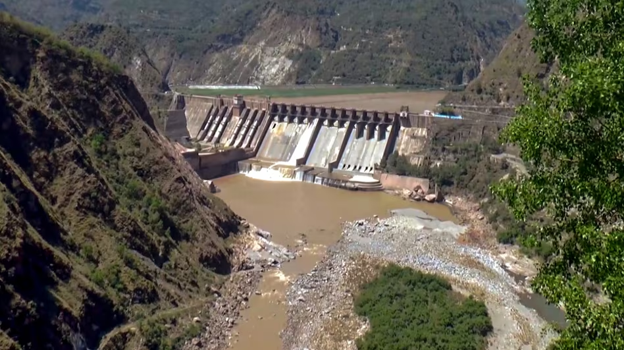INP-WealthPk
Moaaz Manzoor
Experts warn that India’s move to alter the Indus Waters Treaty unilaterally represents a dangerous shift toward the weaponisation of water, demanding diplomatic pushback and strategic preparedness from Pakistan, reports WealthPK.

India’s recent indication to suspend the Indus Waters Treaty —signed in 1960 to govern the shared rivers between India and Pakistan — marks a dangerous shift in regional dynamics. The potential breach of the treaty, which is historically resilient despite political tensions, signals growing use of water as a geopolitical lever in South Asia.
Speaking with WealthPK, Syed Basim Raza, senior researcher at the Centre for Law and Security (CLAS), warned that the “weaponisation of water indeed increases the risk of conflict between the two nuclear powers.” He stated that India’s unilateral suspension of the treaty would “constitute a blatant disregard for international law” and undermine global trust in India’s diplomatic conduct. “Pakistan must fully engage its diplomatic channels to expose this violation,” he urged, adding that international partners should be involved in amplifying this narrative.
Raza outlined a two-tier response strategy, comprising diplomatic and military elements. “The first tier stresses the importance of reinforcing Pakistan’s position in international forums and leveraging multilateral pressure to counter India’s alleged treaty violations. India cannot legally withdraw from the treaty on its own accord,” he asserted, adding that Islamabad must utilise its diplomatic toolkit to challenge New Delhi’s move on legal and moral grounds.
The second tier, Raza cautioned, involves military contingency planning. He emphasised that while military escalation must be avoided, “any attempt to block Pakistan’s share of the Indus waters would be treated as an act of war and met with an appropriate response.” He added that “this is a reasonable position for any state when its survival is at stake.” However, he urged Pakistan to maintain a strict check on the escalation ladder given the nuclear context.
From an economic and resource security perspective, Muhammad Saleem Khan, former chief manager at the State Bank of Pakistan, pointed out that “Pakistan is not entirely dependent on the three western rivers allocated under the treaty.” “Several watercourses from Gilgit-Baltistan, Azad Kashmir, Khyber Pakhtunkhwa, and Afghanistan — such as the Neelum, Swat, Kabul, and Kunar rivers — remain beyond India’s control. India cannot block the Indus as over 90% of its flow comes from Gilgit-Baltistan and China,” Khan noted.
Khan emphasised the need for Pakistan to diversify its water strategy through enhanced infrastructure, environmental conservation, and climate adaptation. He proposed constructing small and medium dams, adopting efficient irrigation technologies, and expanding reforestation efforts in water-sensitive regions to build long-term resilience. “By reducing dependence on the IWT, Pakistan can insulate itself from future geopolitical shocks,” he remarked.
The suspension of the Indus Waters Treaty marks a critical inflection point in regional geopolitics. Experts warn that India’s actions hint at a broader strategy of coercion through resource control. Without urgent diplomatic and structural responses, Pakistan’s water security could become collateral in a dangerous game of strategic brinkmanship.
Credit: INP-WealthPk













